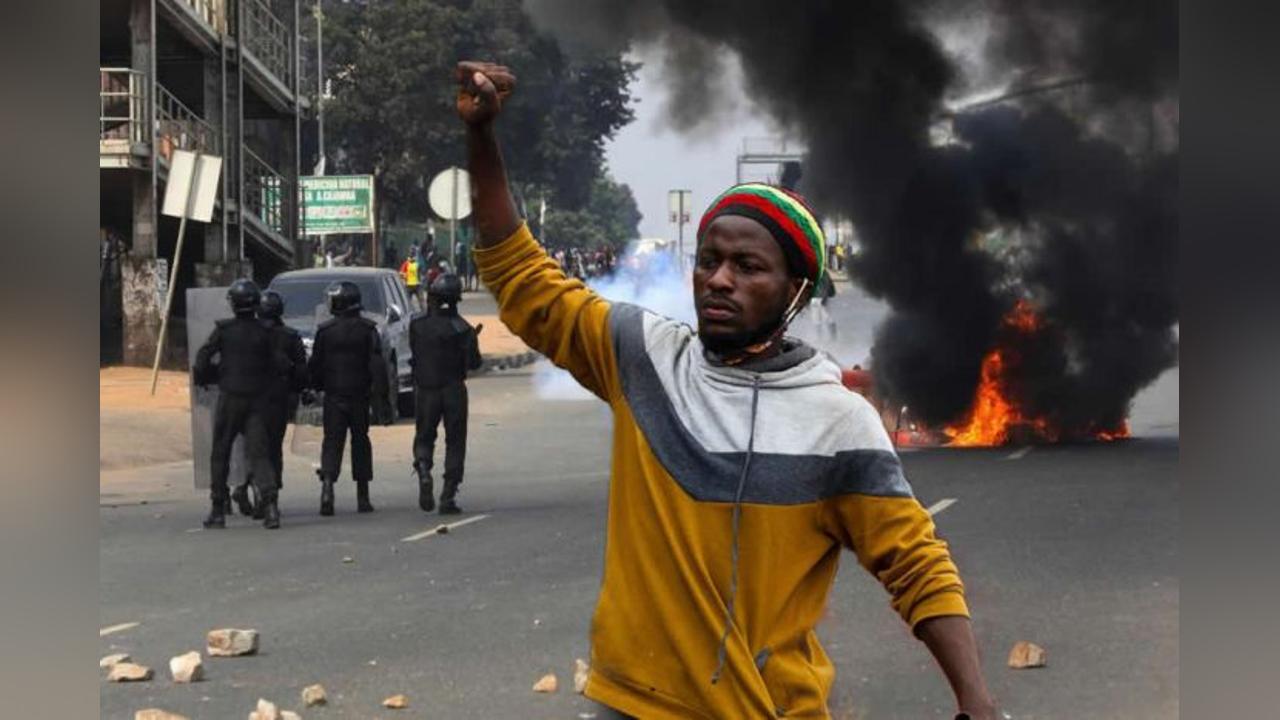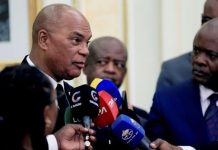Africa-Press – Angola. What can we say about these past few days?! How can we explain to those who thought we’d hit rock bottom that the bottom had finally found its bottom?!
After years and years of impassively watching the silent dismantling of a nation; after decades of sprinkling the nation’s fertile soil with the most sublime indifference, here comes the harvest in the form of… vandalism! Who would have thought that negligence would sow something so surreal? Over these 50 years, education has been treated like that poor relative we only invite to Christmas out of obligation. Like a detail, a luxury, a whim of those with nothing better to do.
Public policies have always been abstract works of art: beautiful on paper, indecipherable in practice, and completely oblivious to the desires of that annoying mass that insists on dignity. And so, between inaction and neglect, we saw the construction of, in a spectacle of absurd architecture, shantytowns and houses stacked like defective Lego blocks.
Meanwhile, the treasury, that bottomless pit from which miracles sprang for some and crumbs for others, was plundered with the dexterity of a magician. The most honorable destination for the money, which should have been ours, was undoubtedly the satisfied stomachs and full suitcases of those who sacrificed themselves in lavish banquets and intercontinental travel. They ate and drank the best of the best, these intrepid explorers of the world, exploring airports and five-star hotels.
They saw the grass greener on the other side, the hospitals that function, the schools that teach. While the people counted their coins for their daily bread, they explored the wonders of the world, from the Eiffel Tower to the pyramids of Egypt, absorbing cultures and knowledge. What did they bring back? Photos, souvenirs, and perhaps a few boxes of Cuban cigars. Replicating the realities abroad? Why?
The originality of the chaos here is much more… authentic. Thus, with unparalleled mastery, they dug an abyss so deep it makes the Mariana Trench look like a puddle. A chasm of inequality that screams, of discrimination that bleeds, of poverty that kills, and of hunger that corrodes the soul. And now, after years of watering this exotic plant with the water of indifference and the fertilizer of corruption, the population—the same population that was ignored, trampled, and forgotten—has decided to speak out.
The people who had been watching patiently until their patience, like an overinflated balloon, finally burst, chose the taxi drivers’ strike as a simple pretext for an urban treasure hunt. And they let loose in the old-fashioned way: looting everything in sight. A cry of desperation, a belated revenge, or perhaps just the most primal manifestation of hunger and revolt.
And it is in this moment of popular catharsis, where accumulated frustration overflows in acts clearly not encouraged by any good manners manual, that the heralds of order raise their voices, shocked and indignant. Vandals! They say, from the height of their arrogance and with the arrogance of those who have never seen an empty chest. But seriously?
Could this just be the distant echo of a cry, stifled for years, that has finally found its own, and somewhat noisy, form of expression? Yes, vandalism, they say. Because, after all, looting public funds, destroying education, building ghettos of poverty, and fostering inequality—that’s not vandalism, right?
But a starving people ransacking a store—oh, that’s barbaric, the ultimate proof that we’re all ungrateful savages. But anyone who thought the irony of vandalism would be the culmination of our tragedy was mistaken! Little did we know that the stage was merely being set for the final act. The government, in its enigmatic wisdom, understood that it was necessary to “nip the evil in the bud.”
And what’s the best way to eradicate a complex social problem, the result of decades of neglect and plunder? With dialogue? With public policies aimed at equity? With investment in education and healthcare? Well, well, well, of course not! The most effective solution, of course, is to kill. Yes, kill. Apparently, the defense forces, the very ones who should protect the citizenry, came out with a clear and concise order: “shoot first, ask questions later.” And so it was. What was once a revolt, albeit chaotic and desperate, turned into a massacre.
Many lives were lost, not to thieves or criminals, but at the hands of those who bear the badge of law. Innocent and guilty, all caught in the same basket of summary punishment and brutal repression. The streets were stained with blood, homes in mourning, the cries of despair drowned out by the roar of guns. And it took four days after the beginning of the uprising for us to hear the presidential voice.
The more optimistic, hoping for an apology, a word of consolation, or perhaps a modicum of self-criticism, received something quite different. João Lourenço, in his long-awaited appearance, not only defended the actions of the security forces that claimed dozens of lives, but also considered them “acted within the scope of their obligations.” Yes, you heard correctly.
Killing civilians, innocent or otherwise, is, in his view, an act worthy of applause. As expected, the President seized the opportunity for his favorite practice: pointing the finger at others.
The blame, obviously, does not lie in decades of neglect, the plundering of the public treasury, the abysmal inequality, or the hunger that is gnawing at the country. Far from it! For João Lourenço, these actions were not a desperate cry from the oppressed population, but rather a diabolical plot. The actions were premeditated and orchestrated by “national and foreign forces.” Well, considering our President’s peculiar oratory, for many perhaps his noisy silence wouldn’t have been so bad.
Indeed, when looking at the quality (or lack thereof) of the speeches he’s accustomed us to, a terrible truth emerges: remaining silent could have been his greatest act of public service. Because let’s be frank: the last thing this national fire needed was more gasoline. And if there’s one thing presidential speeches have become adept at, it’s fanning flames where embers are already burning.
With each intervention, the expectation of a word of comfort, guidance, or empathy is almost always dashed by a tangle of empty phrases, a glaring disconnect from reality. So, yes, perhaps we could have been spared another dose of empty rhetoric. It’s a bitter realization, no doubt, but silence, in this case, wouldn’t have been golden, but perhaps it would have been the lesser evil.
For More News And Analysis About Angola Follow Africa-Press






